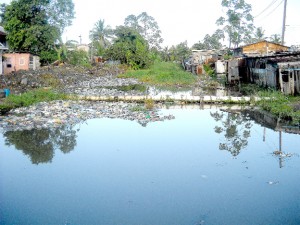It’s such a relief to see that in the Philippines, a growing number of major chains are now using paper bags instead of the usual plastic. This is a positive development particularly as the country is often beset by flood problems every year during the typhoon season partially caused by clogged drainages resulting from accumulation of plastic trash.
Some of the major business companies that have turned to paper bags are McDonald’s, CD-R King, National Bookstore, Bench and Goldilocks. In some prominent malls, a specific day each week is designated as eco-friendly day. On this day, shoppers are encouraged to bring their own bags otherwise, they will be charged a certain amount for using the mall’s biodegradable plastic bag which is normally free on other days.
In addition to this use of paper bags and other types of eco-friendly bags, a city in the country’s national capital region has carried out a law that bans the use of plastic bags. It’s not a total ban, though, but just a move to regulate the use of plastic bags by market vendors and other stores.

Authorities have long observed that a great number of people, particularly those in the low-income bracket are not disposing of their plastic bags properly. For this reason, their garbage managed to reach the drainage systems and waterways clogging them and causing flashfloods whenever heavy downpour occurs.
I’m sharing some vital statistics from OceanCrusaders.org on the use of plastic bags around the world and the problems they’ve caused in the environment.
Did you know that shoppers worldwide use around single-use plastic bags every year? This is equivalent to one millions bags used globally every minute or 150 bags each year for every person.
In the ocean, there is an estimated 46,000 pieces of plastic for every square mile and around 100,000 sea creatures die each year when they get entangled with plastic. Apart from the creatures living in the sea, some one million sea birds also die from this same material.
On a daily basis, did you know that some 13,000 to 15,000 pieces of plastic are dumped into ocean? Yearly, the volume of this is estimate to reach 6.4 million tons which equates to 32 kilometers of trucks containing garbage.